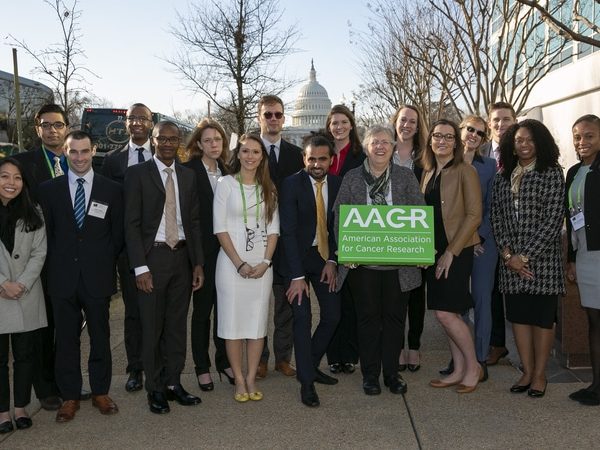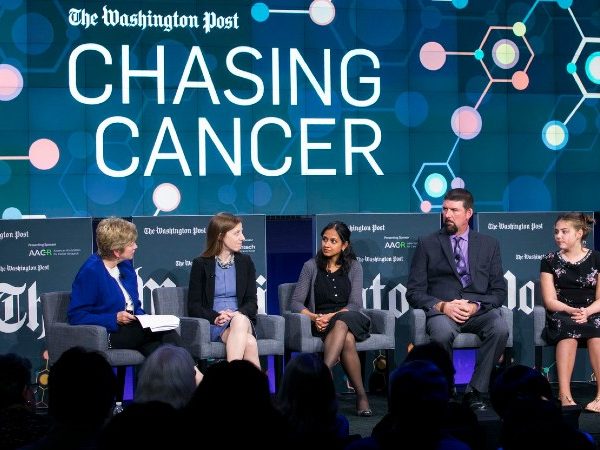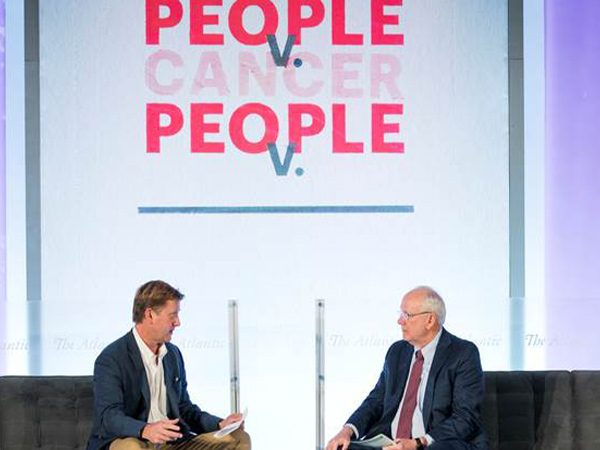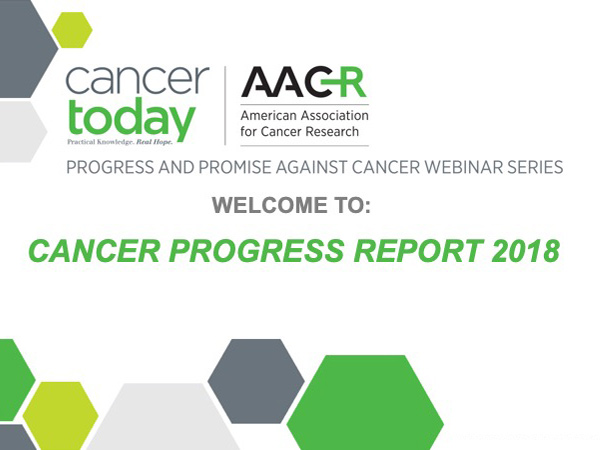Progress and Promise Against Cancer – Washington, D.C.
A Free Community Education Event on Cancer
Centered in the hub of where many health policy decisions are made, “Progress and Promise Against Cancer,” held in Washington, D.C. on Saturday, April 1, offered practical knowledge and real hope to more than 150 attendees. This free, public event brought together some of the world’s greatest minds in cancer research for a dynamic day of conversation and education for cancer patients, survivors, and all interested in learning more about cancer. Attendees also had the opportunity to connect with 20 organizations in the Cancer Resource Partner Pavilion. Experts from Johns Hopkins, Yale Cancer Center, Georgetown Lombardi Comprehensive Cancer Center, Howard University, National Cancer Institute, and Mayo Clinic, among others, discussed innovations in cancer research, treatment, and prevention, and how future health policies could impact patients.
AACR President 2017-2018, Michael A. Caligiuri, director of the Ohio State University Comprehensive Cancer Center, served as the event’s emcee and delivered the opening address. During his remarks, he gave a succinct and accessible explanation of what cancer is and what it does to the body. He also spoke about health disparities and the need for more focused research.
The first panel, moderated by Laurie McGinley from The Washington Post, provided attendees with an overview of the latest advances in cancer precision medicine and immunotherapy. The panel shared the sentiment of frustration as they discussed how these treatments are growing in popularity, but still only reach a small percentage of the cancer population and do not benefit all patients. Additional clinical trials need to be conducted to expand their accessibility, panelists agreed.
The second panel, Cancer Prevention and Early Detection, was moderated by Liz Szabo from Kaiser Health News and tackled the topic of vaccines. Panelist Douglas R. Lowy, acting director of the National Cancer Institute (NCI) in Bethesda, Maryland, explained that despite advances made in cancer prevention and screening, underutilization of these tools remains an issue. He noted specifically the underuse of the human papillomavirus (HPV) vaccine that protects against cancers caused by the virus, including cervical cancer. For more on Lowy’s talk, see Cancer Today.
Today’s Policy Landscape, the third and last panel, was moderated by Dylan Scott from STAT and provided some hope despite the recently proposed budget cuts to cancer research. Also reported on Cancer Today, panelist and cancer researcher Gil Omenn, chair of the AACR Health Policy Committee and a professor at the University of Michigan Medical School in Ann Arbor, remains optimistic that deep cuts proposed in the 2017 and 2018 budgets for the National Institutes of Health (NIH) will not take place. Omenn reminded the audience that there is a long history of bipartisan support in the U.S. Congress for biomedical research. He cited the 21st Century Cures Act passed in December 2016, which was approved by the U.S. Senate and House of Representatives with broad support from Republicans and Democrats. “There are strong champions for biomedical research on both sides of the aisle,” Omenn said.



